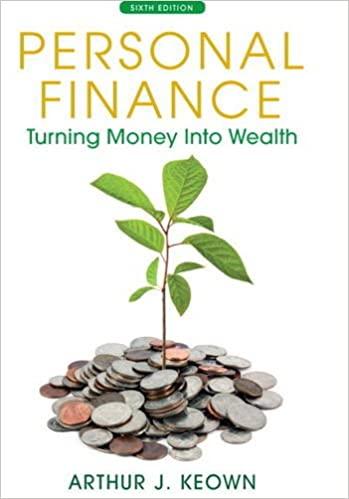Question
1. Assume an efficient market with no arbitrage opportunities. A convertible bond currently has a conversion value far greater than its straight value. How does
1. Assume an efficient market with no arbitrage opportunities. A convertible bond currently has a conversion value far greater than its straight value. How does this convertible bond's market conversion price compare to its common share price and why?
A. Market conversion price B. Market conversion price>common share price, because the convertible bond offers investors downside protection which common shares do not. C. Market conversion price=common share price, because the convertible is no different from equity in this scenario. D. Market conversion price E. Market conversion price>common share price, because the convertible bond offers investors unlimited upside potential which common shares do not. 2. In an efficient capital market, the price of a convertible cannot fall below the value of a comparable straight bond. Assume no credit risk. True/False 3. A company releases outstanding earnings numbers and raises guidance for the next fiscal year, and the stock price as a result jumps up 20%, then it is optimal to convert a convertible bond on this company into stocks right away. Assume that the stock pays no dividend. True/False
Step by Step Solution
There are 3 Steps involved in it
Step: 1

Get Instant Access to Expert-Tailored Solutions
See step-by-step solutions with expert insights and AI powered tools for academic success
Step: 2

Step: 3

Ace Your Homework with AI
Get the answers you need in no time with our AI-driven, step-by-step assistance
Get Started


